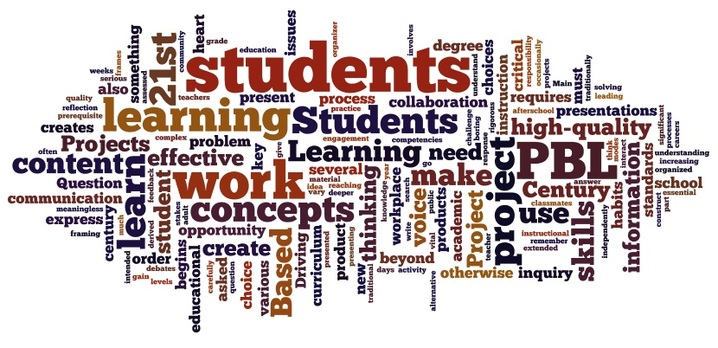In the article 7 Essentials for Project Based Learning, There are seven ideas that help with understanding Project Based Learning. The first idea is called "A Need to Know." This idea, according to Larmer and Mergendoller, provides the students with what they need to know to develop a clear and concise project. This keeps their projects on topic and to the point. The second idea is called "A Driving Question." The driving question is the thesis of the entire project. This question, according the Larmer and Mergendoller, should be provocative, open-ended, complex and linked to the core of what the students want to learn. The third idea is "Student Voice and Choice." This principle is geared towards the work quality of the student. The project has to feel meaningful to the students. These projects should fit the students style. The fourth idea is "21st Century Skills." According to Larmer and Mergendoller, 21st century skills are collaboration, critical thinking, communication, and the use of technology. The fifth idea is "Inquiry and Innovation." In dealing with Inquiry students are finding real life research and discovering answers through Innovation. The sixth idea is "Feedback and Revision." Feedback is given from teachers and fellow students. This gives the student valuable information on how good or bad their project is. Revision is the student taking that feedback and correcting mistakes that were made the first time and doing better the next time. The last idea is "A Publicly Presented Product." This is the student presenting his or her work to more than the teacher and his or her classmates. This student's work can be placed on the internet for all to see or their work can be displayed for the community to see. When this is done the student tends to do better work and put in more of an effort to do good work.
Project Based Learning for Teachers
Using Project Based Learning, students learn different skills such as collaboration skills, critical thinking skills, and career and life skills. Project based learning is a combination of questioning, investigating, sharing, and reflecting. Technology is important also. The following technological devices are used with Project Based Learning: Powerpoint, glogster, meeting words, xtranormal ZooBurst, Popplet, Edmodo, Google Docs, Prezi, Blabbenze and many more. Students take charge of learning when using project based learning. Project Based Learning includes having a purpose, addressing an audience, crafting a driving question, identifying learning standards creating rubrics, grouping students, brainstorming, and meeting deadlines, just to name a few.
What Motivates Students? Motivation starts with rewarding students for doing good. Making good grades in school motivates kids so that they can get a good job to make good money and feed their family. Good grades also come with going to college so that you can get a degree and get a great job. Motivation for doing good in school keep students out of trouble and allows students to have fun on the weekends and go places with their friends. Students liked to be rewarded with pizza parties, garden time, and stickers.
High School Teachers Meet the Challenges of PBL Implementation
This video gives ways to create Project Based Learning in English and Math class. It is hard to do Project Based Learning in Math and English class. High school Math teachers have the students create games in groups which is fun and engaging for the students. Project Based Learning in english class is more complicated. The high school teachers turn learning onto a script that the students enjoy. Project Based Learning increased students passing high school and raised test scores.
 |
| Photo Citation |
Hi Raquelle!
ReplyDeleteI liked the video on what motivates children. I loved that students had the motivation to do good in school because of what they will get out of it in the long run. Candy and parties are nice and exciting to young children but they aren't life long rewards like getting a good job when they get older and get their degree.
Great Post!
Alison